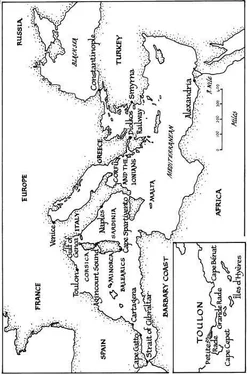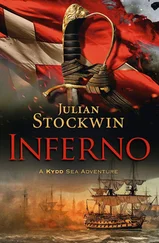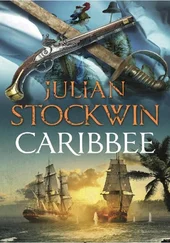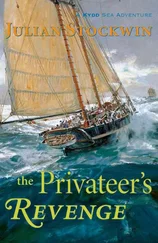Julian Stockwin - Victory
Здесь есть возможность читать онлайн «Julian Stockwin - Victory» весь текст электронной книги совершенно бесплатно (целиком полную версию без сокращений). В некоторых случаях можно слушать аудио, скачать через торрент в формате fb2 и присутствует краткое содержание. Жанр: Старинная литература, на английском языке. Описание произведения, (предисловие) а так же отзывы посетителей доступны на портале библиотеки ЛибКат.
- Название:Victory
- Автор:
- Жанр:
- Год:неизвестен
- ISBN:нет данных
- Рейтинг книги:4 / 5. Голосов: 1
-
Избранное:Добавить в избранное
- Отзывы:
-
Ваша оценка:
- 80
- 1
- 2
- 3
- 4
- 5
Victory: краткое содержание, описание и аннотация
Предлагаем к чтению аннотацию, описание, краткое содержание или предисловие (зависит от того, что написал сам автор книги «Victory»). Если вы не нашли необходимую информацию о книге — напишите в комментариях, мы постараемся отыскать её.
Victory — читать онлайн бесплатно полную книгу (весь текст) целиком
Ниже представлен текст книги, разбитый по страницам. Система сохранения места последней прочитанной страницы, позволяет с удобством читать онлайн бесплатно книгу «Victory», без необходимости каждый раз заново искать на чём Вы остановились. Поставьте закладку, и сможете в любой момент перейти на страницу, на которой закончили чтение.
Интервал:
Закладка:
‘Very well, my lord,’ Hardy said softly, taking his hand. ‘We’ve got twelve or fourteen of the enemy’s ships in our possession but five of their van have tacked and show an intention of bearing down on Victory . I’ve therefore called two or three of our ships round us and have no doubt of giving them a drubbing.’
‘That is well, but I bargained on twenty.’ Nelson choked and recovered, a spasm of anxiety causing him to try to raise himself. ‘ Anchor , Hardy, anchor! ’ he panted wretchedly.
The captain frowned. ‘I suppose, my lord, Admiral Collingwood will now take upon himself the direction of affairs.’
‘Not while I live, I hope, Hardy!’ Nelson gasped forcefully. ‘No, do you anchor, Hardy.’
‘Shall we then make the signal, sir?’
‘Yes – for if I live, I’ll anchor!’
The spasm past, Nelson lay back but spoke once more. ‘Don’t throw me overboard, Hardy.’
Shocked, Hardy answered, ‘Oh, sir, no – certainly not!’
After a few moments Nelson rallied and said, his weak voice charged with feeling, ‘Take care of my dear Lady Hamilton, Hardy – do take care of poor Lady Hamilton.’
The effort seemed to exhaust him but he went on faintly, ‘Kiss me, Hardy.’
His friend knelt and kissed him on the cheek, and Nelson murmured, ‘Now I am satisfied. Thank God I have done my duty.’
Hardy stood for a minute or two, his face a mask, then knelt again and kissed him once more. ‘Who is that?’ Nelson whispered.
‘It is Hardy, my lord.’
‘God bless you, Hardy,’ Nelson said feebly.
The captain of Victory then left.
Bowden could not tear his eyes away from the scene; he saw the faithful Scott lean down as Nelson said weakly, ‘Doctor, I have not been a great sinner.’ The chaplain, overcome, could not speak and Nelson went on, ‘Remember, I leave Lady Hamilton and my daughter Horatia as a legacy to my country.’
Slipping in and out of consciousness he muttered, ‘Never forget Horatia,’ and again, ‘Thank God I have done my duty.’
A little time passed, then Scott called out, distraught. Beatty was with his assistants but came immediately. He took Nelson’s wrist and felt the forehead, then stiffly rose, shaking his head. He stood for a moment, looking down on the still figure. Then, collecting himself, he looked about him.
Catching sight of Bowden sitting against the side he stepped across. ‘Sir, are you able to walk?’
Bowden nodded, speechless.
‘Then you shall have the infinitely melancholy duty to inform the captain that his lordship is no more and, consequently, his flag needs must be hauled down.’
Chapter 14
The feeling of unreality deepened. It seemed the eyes of half London were on them as L’Aurore lost way, carefully and precisely ceasing to move, her bows into the swift current of the Thames. Her anchor plunged as she eased into position astern of the vessel they had escorted from the open sea to the heart of the capital.
It was the Honourable George Grey’s yacht Chatham , on its most important mission ever: to take the body of Horatio, Lord Nelson, from Victory at the Nore to Greenwich, where it was to lie in state. Now, opposite the magnificence of Wren’s buildings, the final act was to take place that would see Nelson return from the sea to the land that had given him birth.
Captain Kydd signalled discreetly and the boatswain pealed out his call. Instantly men leaped for the ratlines and by the beat of a drum mounted each mast in unison, spreading out along the yardarms in grave silence, every man with a black armband.
On Chatham Nelson’s coffin was prepared for lowering into the ceremonial barge alongside. Of great size and superbly ornamented, it was made from the main-mast of L’Orient , the French flagship that had exploded into fiery oblivion at the Nile.
As it was hoisted clear of the deck, Kydd whipped off his full-dress cocked hat. The rest of the little party on the quarterdeck followed suit, and out on the yards far above, every man did likewise. Into the awful silence came the flat thud of the first minute gun and a spreading murmur from the vast crowds lining the riverbank.
Next to Kydd, captured enemy officers were nobly paying their respects. Standing apart from them, however, was a tall, deathly pale individual whose greatest wish – to die in his flagship where so many others had done so – had been denied him. It was the French commander, Villeneuve.
Kydd glanced at him. What conceivably could he be thinking at this time? He had done his duty and more, but he had had the monumental misfortune to have Horatio Nelson as his opponent. When he had left Cadiz he must have known what was waiting, yet still he had sailed.
And it had been far worse for him than even the most pessimistic could have foreseen. A battle of annihilation that had left the Combined Fleet shattered, sunk, captured or fleeing. Ten times the casualties that the English had suffered and a psychological wound that would last far longer. It was defeat on a heroic scale to be talked about for all of time.
In his frigate Kydd had necessarily stayed clear of the carnage but from his vantage-point he had seen the dread grandeur of the conflict unfold through to its finality when, as if to signal an end to the cataclysm, Achille had taken fire and exploded.
He had also been witness to the shameful act of the French van, appearing to be finally turning back in aid of the centre but instead careering on through the fighting, firing on friend and foe alike to flee the field. A dozen of the Spanish also had taken the opportunity to turn and run for Cadiz, no longer able to stand against the fury of the English guns.
But what he knew would for ever stay with him was what had followed after the guns had fallen silent, when he had closed with the mile square of wreck-strewn water off Cape Trafalgar: over there was Victory , no mizzen, her fore-mast and bowsprit a stump, trailing a tangle of stranded rigging and splintered spars. Belleisle was even worse: totally dismasted and a hulk, her sides appallingly battered by shot, yet her white ensign still gallantly flying, tied to the riven remains of her main-mast.
All told there were seventeen dismasted hulks from both sides drifting in the sea, along with the pathetic blobs of floating corpses, the stench of fire and the all-pervasive reek of powder-smoke. But for Kydd nothing was more poignant and shocking than the broken cry of a seaman noticing that Admiral Nelson’s flag no longer flew in Victory .
The news had taken hold and, when confirmed by the commander-in-chief’s flag rising first in Collingwood’s crippled Royal Sovereign and then in Euryalus , a pall of mourning had descended that touched every man.
Now, at Greenwich, they were still in a haze of disbelief and bereavement, the joy of victory invisible behind a curtain of grief. They stood motionless as the coffin was gently lowered, the officers’ heads bowed in the utmost solemnity.
Shortly after the barge had left, another arrived alongside L’Aurore . Villeneuve with great dignity bowed gravely, first to Kydd and then his officers, and entered the boat to be taken into captivity. For him it was a parole and gracious living, even an exchange to return to France; for the surviving seamen who had fought so heroically for him, it was the fetid hulks or prisons far inland – even the lonely desolation of the one being built on Dartmoor – to rot out their life, their only crime to have served their country faithfully.
Kydd had himself boarded and taken possession of a Spanish ship-of-the-line, and the cruel devastation that a raking pass had inflicted aboard had shaken him. More than a hundred and fifty seamen in one stroke killed or hideously wounded, their pain and suffering a living hell of unimaginable piteousness. Below decks they had found a charnel house of blood and remains, bodies still heaped by their guns, the racking groans of the maimed . . .
Читать дальшеИнтервал:
Закладка:
Похожие книги на «Victory»
Представляем Вашему вниманию похожие книги на «Victory» списком для выбора. Мы отобрали схожую по названию и смыслу литературу в надежде предоставить читателям больше вариантов отыскать новые, интересные, ещё непрочитанные произведения.
Обсуждение, отзывы о книге «Victory» и просто собственные мнения читателей. Оставьте ваши комментарии, напишите, что Вы думаете о произведении, его смысле или главных героях. Укажите что конкретно понравилось, а что нет, и почему Вы так считаете.









